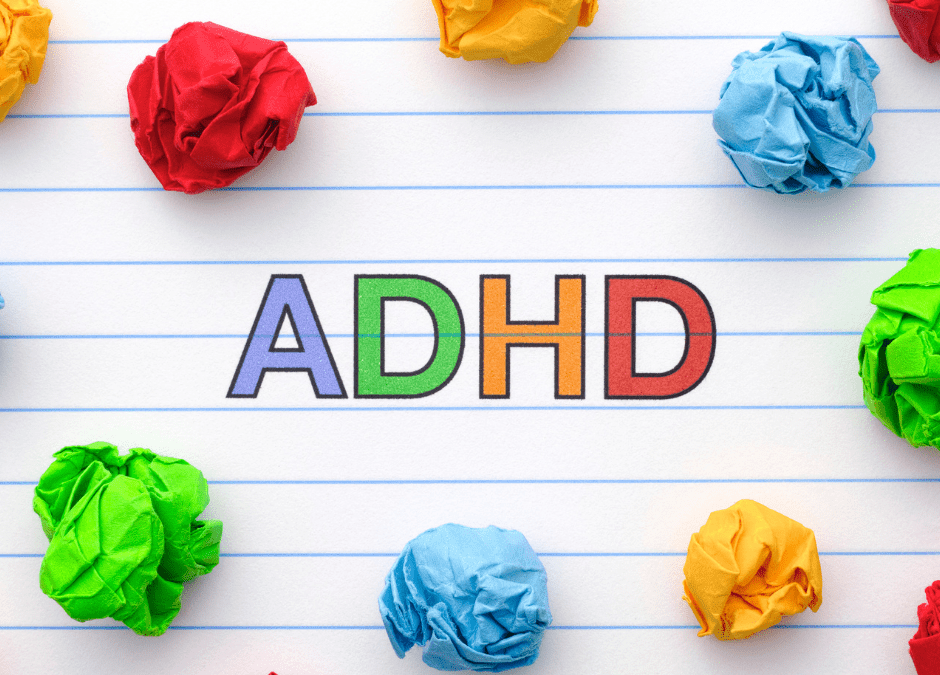Table of Contents
Is it okay to use medications for ADHD? Do these medications have any side effects? I understand that you might have several such questions in your mind, and in this article, we are going to address all those issues.
It is true that the symptoms of ADHD can be kept in control with the help of medication. This applies to both adults and children. You can get a hold on impulsivity, inattentiveness, and hyperactivity by taking the right medications. But you also have to understand that there are several risks and side effects associated with these medications. Whether you are an ADHD patient yourself or a family member, it is of utmost importance that you have all the knowledge about ADHD medications. Having a comprehensive knowledge will help you make the right decisions and go with the best options.
Before going into too many details, one of the most basic things to understand is how these medications can help an ADHD patient and what their limitations are. For starters, taking the right medications will help the patient stay focused on the task at hand, plan things properly, and get a grip on their impulses. But you also have to remember that medications cannot do any magic. You will notice that the patient is suffering from certain symptoms like social anxiety and forgetfulness from time to time, even when they are taking the medications. This includes maintaining a proper sleep cycle, following a healthy diet, and doing some regular exercise.
A Lifelong Problem
Remember that no matter what medication you use, ADHD is a lifelong problem, and it will not be cured by medication. But when you take the meds, you will get relief from the nagging symptoms. Some patients think that now that they are not having symptoms, they can stop the meds. But the moment they do that, the symptoms come back, and they are worse. Another thing to keep in mind is that the medications don’t work equally on everyone. If someone you know is benefitting a lot from a certain medication, it is not that you will get the same level of benefits. You might only notice some modest development while the other person might witness dramatic changes. The reaction of a patient to a particular ADHD medication is quite unpredictable. The main reason behind this is that every person has a different response to the medication.
Even after that, you should visit the doctor for regular check-ups. ADHD might go out of hand and become a risk if you do not visit the doctor from time to time. The medications need to be monitored very closely.
Stimulant Medications
There are basically two groups of medications that are used in the treatment process of this disorder. One of them is the stimulant medications. They mostly help you by controlling hyperactivity, reigning in impulsive behavior, and stretching the short attention span of the patient. Sometimes, patients are treated solely with the help of stimulant medication, and at other times, some kind of therapy is used along with the meds.
It has been found that about 70-80% of the children and 70% of the adults with ADHD have seen an improvement in their symptoms once they started using stimulant medications. The meds have also proved to be fruitful in helping patients to improve their relationships. If the patients keep on taking the medications without fail, then they witness not only better behavioral tendencies but also a much more focused life. However, there is still not enough evidence supporting the fact that medications can help in regulating the social life of patients.
Stimulant Drugs
Another interesting fact to keep in mind about the stimulant medications is that they have been in use for the longest time when it comes to ADHD treatment. Their effectiveness in this field is backed up several studies. Some familiar names in this group of medications are Dexedrine, Adderall, and Ritalin.
The main working mechanism of stimulant drugs is that they help in increasing the levels of dopamine in the brain. Now, for your knowledge, there are several neurotransmitters in the brain, and dopamine is just one of them. It is mainly responsible for movement, attention, pleasure, and motivation. Most ADHD patients have reported that they have received significant benefits after taking stimulant medications in terms of improved focus and concentration levels.
Now, there are two types of stimulant medications that are used. They are as follows –
- Long-acting stimulants – These medications are usually prescribed to be taken only once in a day. It is because their effect lingers for a long time period, usually for about eight to twelve hours. They are also known as extended-release stimulants. These medications are also more commonly preferred. When people have ADHD, they have trouble remembering stuff, and so, if they have to take medications multiple times in a day, it becomes difficult. But in the case of long-acting stimulants, they only need to take the meds once a day. Thus, it is a much more convenient option.
- Short-acting stimulants – The other type of stimulant medications are the short-acting ones. As the name suggests, the effect of these meds is very short-lived, and their peak effect is felt after several hours of consumption. They need to be taken at least two times a day and sometimes even three.
Now, let us talk about some of the common side effects that stimulant medications have –
- Upset stomach
- Dizziness
- Frequent mood swings and irritability
- Feeling jittery and restless
- Tics
- Sleeping irregularities
- Headache
- Fast-paced heartbeat
- Increase in blood pressure
- Reduced appetite
- Depression
- Nervousness
Some people have reported becoming more talkative, whereas others become rigid or listless. There have also been cases where patients became less spontaneous and somewhat withdrawn from life.
There are certain side effects that do not linger for long. These include upset stomach and headache. They might go away once the patient becomes accustomed to the medication. Your body will take time to adjust itself to this new medication, but once that time period is over, you should get better. But you will have to inform your doctor if the side effects remain for a longer time.
In some cases, people are allergic to certain stimulant medications. The allergy might manifest itself in the form of a rash or skin pigmentation. Keep an eye out for such signs, and if you notice anything of that sort, you have to inform your doctor at once.
Now that we have discussed the different side effects of these medications, it is time you are made known about other safety concerns that are associated with taking stimulant medications.
- Heart – Let us first see what effect these medications have on your heart. When adults with pre-existing heart conditions take these stimulant medications over the long-term, sudden death has been noticed in some of these patients. And, if the person already has a history of problems related to the cardiovascular system, then an electrocardiogram should be done.
- Developing brain – When stimulant medications are administered to kids with ADHD or adolescents, the effect on the developing brain has not yet been clearly determined. But it is a common fear among the researchers that brain development might be hampered when children are exposed to stimulant medications over the long-term.
- Substance abuse – It is a very growing concern among the families of ADHD patients because stimulant medications often lead to substance abuse problems. This is even more common in young adults and teens. The fact that stimulant medications can cause a loss in weight has also added to this problem. So, if someone in your house is taking the stimulant medication, you have to be aware as to whether they are selling these or sharing them with someone else.
- Psychiatric problems – Some psychiatric problems are triggered by the use of stimulant medications. These problems include paranoia, depression, anxiety, aggression, and hostility. If the ADHD patient already has a family history of bipolar disorder, depression, or suicide, then they are more at risk of developing these problems. So, when a patient is taking stimulant medications, they should miss an appointment with their doctor because these medications have to be closely monitored at all times.
If you are still confused about when you should call your doctor, then here are some red flags that you should be aware of –
- Fainting
- Difficulty in breathing
- Pain in the chest
- Paranoia or suspicion
- Having auditory or visual hallucinations
If you notice any of the above-mentioned signs in the patient, you need to call the doctor at once.
Non-Stimulant Medications
These include several medications used for controlling blood pressure, antidepressants, and also Strattera. Usually, doctors don’t prescribe non-stimulant medications right away. The first choice is always the stimulant medication.
So, let us talk about these non-stimulant medications one by one.
Strattera. The medicines are also popularly known by its generic name – which is – atomoxetine.
In fact, you can get relief from the symptoms for an entire day. Thus, for people who find it challenging to get up in the morning, this medication is quite a good option. Another positive point about Strattera is that it helps in curbing depression. So, if a patient is already suffering from depression and anxiety along with ADHD, then Strattera is a very good choice of medication for them. Moreover, it doesn’t matter whether the patient has Tourette’s Syndrome or tics; they can still have this medication. Aside from all this, the effectiveness of Strattera in treating the symptoms of ADHD are comparable to that of stimulant medications.
Some of the commonly seen side effects in patients using Strattera are as follows – frequent mood swings, vomiting or nausea, upset stomach, pain in the abdomen, dizziness, headache, and feeling lethargic or sleepy.
The first category of medicines is antidepressants.
Antidepressants. Bupropion is the generic name of this medicine. This medicine aims at both dopamine and norepinephrine. Apart from this, there is another line of treatment open to the doctors, which involves the use of tricyclic antidepressants. The side effects of this medication are quite mild, but the patient might experience a loss of appetite, irritability, worsening, or Tourette’s syndrome or tics, and decreased sleep.
Medications for high blood pressure. But not all medications of this category are suitable for ADHD treatment. Some common names include guanfacine or Tenex and clonidine or Catapres. But they are helpful in decreasing hyperactivity, aggression, and impulsivity.
When Should I Take Medications?
Even though it might seem like an easy decision, it is not. Today, people are aware of a lot of facts regarding ADHD, and yet they are not enough to make this decision. Well, what I can tell you is that you shouldn’t make this decision in a hurry. Think it through and take your time if you are still unsure. Judge all the options that are present in front of you. But lastly, you should never overlook your instinct.
If you want to have a better idea about the medications in ADHD treatment, then you should visit a specialist and clarify your queries. Some common things that you should ask are as follows –
- Is medication absolutely necessary to help me manage my symptoms?
- What are the treatment options that I have in front of me?
- What is the effectiveness of these medications?
- Considering my symptoms, what is your choice of medications for me? Do these medications have any side effects?
- During the course of the treatment, will the medications have to be taken throughout?
- How will I know when I have to stop taking the medications? What are the signs?
Remember that taking medications is not the only type of treatment approach there is for ADHD. The challenges posed by ADHD can be conquered by other methods as well, and the patient can still lead a life that is productive.
- For starters, what you eat is very important. Your diet should be healthy. Your diet not only has a direct effect on your symptoms, but it can also uplift your mood and help you concentrate. If you eat the right type of food, you will find yourself with greater energy levels than before. So, have a fixed time for eating your meals and also include some snacks in your meal plan in between the major meals. Your diet should be rich in magnesium, iron, and zinc alongside the omega-3 fatty acids.
- The next thing to do is to have a regular exercise schedule. Exercising daily doesn’t mean that you have to do some kind of intense workout. Any type of physical activity helps elevate the levels of serotonin, norepinephrine, and dopamine. If you don’t want to hit the gym, you can also try dancing, skateboarding, or simply walking. Do anything you love that involves burning some calories. Put down your mobile phone on weekends and go outside for a walk. You will automatically feel replenished.
- Give a shot at therapy. Coping with your problems can become easier with therapy. In ADHD, there are certain habits of the patient that can flare up the symptoms, but therapy can solve this problem. You will also learn how to organize your life and manage your time. All of this will ultimately help you in achieving your goals.
- Having a good sleep at night is equally important, like everything else mentioned above. Once you start sleeping well, you will notice how drastically your symptoms are improving. Sleeping well at night is not that difficult. All you need to do is make some small changes in your sleeping habits and you will be noticing some really good changes. For starters, don’t drink caffeine in the second half of the day. Also, try to set a fixed time for going to bed at night.
- Lastly, staying positive can make a massive difference in the result of the treatment. If you stay happy and positive minded, nothing can pull you down, and you will get better results.
Conclusion
I would also like to remind you that if you decide to start taking the medications as prescribed by your doctor, you also have to promise yourself that you are going to maintain the schedule. In order to get the effectiveness of the medications, following instructions is of utmost importance. You need to know everything about those medications, and your doctor is the best person to ask.
Also, you might not find the right medication for you in the first try. It’s like a hit-and-trial method. So, you have to communicate openly and be honest in order to find the medication that suits you best.






 I love to write medical education books. My books are written for everyone in an easy to read and understandable style.
I love to write medical education books. My books are written for everyone in an easy to read and understandable style.
